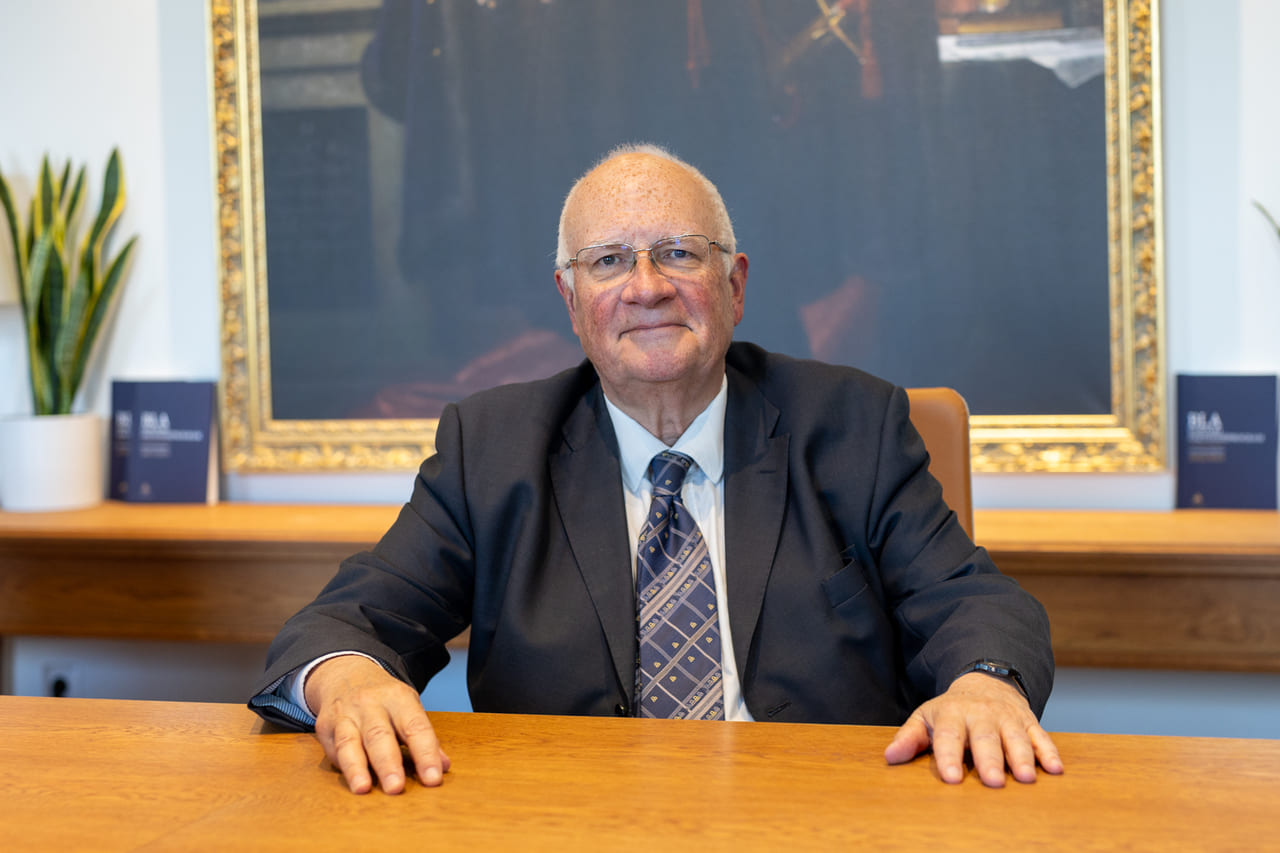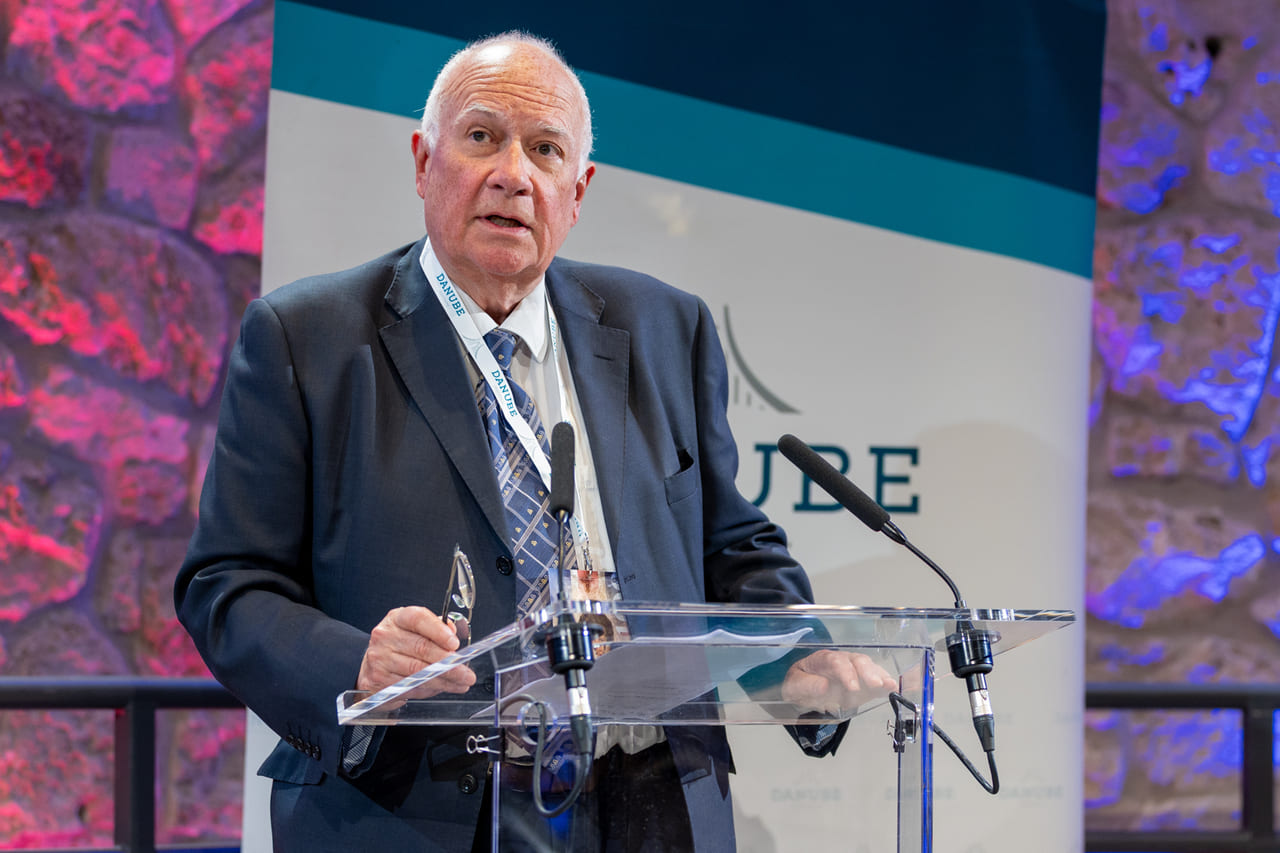With the kind permission of the author, Mr. Tamás Maráczi, we republish an excerpt of the interview, given exclusively to Hungarian Conservative, with the President of the COK, Mr. Robin Harris. Cover photograph by Tamás Gyurkovits.
What was the most humane story you experienced working alongside Margaret Thatcher?
I had a very good, though sometimes stormy, relationship with her. We had rows, but neither of us ever kept any bitterness afterward. We were good friends overall, and she was always good to me.
One thing I’ll tell you is that before Christmas every year, she would try to find out who among those around her—or among politicians she knew—were going to be alone at Christmas because of marriage or family problems. Politicians, generally, often make a mess of their own lives. She would invite them to Christmas at Chequers, the Prime Minister’s residence, and they would all be entertained there and receive presents. She acted as a kind of mother to these people who, for one reason or another, didn’t have anywhere to go. We’re talking about politicians here. She was thrown out of office in November 1990, but even after that, she sent Christmas presents to all of the staff at Chequers, even though she was no longer Prime Minister.
The Truth about the Iron Lady
Does the term Iron Lady reflect her real personality? Was she a rigid or a flexible person?
She was highly feminine. The strength of a woman is not the same as the strength of a man. I don’t mean physical strength—I mean that what makes a woman powerful and strong is different; they don’t behave in the same way as a man. Mrs Thatcher would shout, but not quite in the way a man would.
The thing about the Iron Lady—remember, that was coined by the Soviet press after she gave speeches in 1975 denouncing the Soviet Union. So that was just propaganda. And we then used that propaganda ourselves, because it was good propaganda. She actually liked being called the Iron Lady; it was quite good publicity. It didn’t really reflect what she was like, but she was strong.
So, in the end, the description of the Iron Lady wasn’t that far from the truth.
Yes, it was true. I’m just saying that originally it was a stupid Soviet propaganda thing, but it does reflect her; she was a very strong personality.
She was strong at every moment, but she actually listened. So yes, her manner was strong and sometimes aggressive. Sometimes she was rude—but she was never rude to people who couldn’t answer back. Never rude to servants, never rude to cleaners, never rude to some old woman who had some trouble.
If Disasters Come In Threes, You’ve Had It
It was the last year of her premiership. What went wrong? She resigned in 1990—what was the big problem at that time?
There were three problems. The first was that if you’ve been around for more than ten years, people get fed up. If you’ve been in power long enough, there’s always jealousy and ambition. The second problem was that the economy had gone wrong—inflation had been allowed to rise, and we were going through a recession. And then we introduced this new local tax called the Community Charge, or Poll Tax, and that was a disaster, because the bills, for all sorts of technical reasons, were far higher than they were meant to be.
The third thing was this creeping row over Europe. There was a real disagreement in the Cabinet about Europe, because most of them were still pro-European integration, and she was against it. So these things came together. And what happens in politics is that if disasters come in threes, you’ve had it.
Mrs Thatcher’s Legacy Was Betrayed by the Conservatives
She then foresaw what would happen in the European Union, what the political integration would be like.
Yes. Two years earlier, she delivered the Bruges speech—a very important speech in 1988—where she put forward an alternative model for Europe, one with no single currency, based instead on cooperation between individual nation states through trade and joint initiatives in areas of mutual interest. Very much, I think, as Viktor Orbán would probably like now. That was her vision, but it was not shared by most of the Cabinet.
What is Margaret Thatcher’s living political legacy in British politics today?
Well, I think the long-term legacy is that we are no longer a member of the European Union. Basically, the direction she set—that we should not move toward further integration—has prevailed. I would say that is her legacy, because although she was not there by the time of Brexit, she had kept that argument about British sovereignty alive.
I suppose that’s it, really, because a lot of the rest of it has been lost—the idea of a small state, limited government, that sort of thing. The Conservatives completely betrayed all of that. They allowed a million non-European immigrants in one year, and they raised taxes to their highest level in 70 years. Mrs Thatcher’s legacy was betrayed by the Conservatives, and consequently, the party now finds it very difficult to get back into power.
Please read the entire interview by clicking the link here.
***
About COK’s President, Robin Harris
Historian, journalist, former adviser to British Prime Minister Margaret Thatcher – he is a Croatian citizen and lives in Croatia. He received the Order of the Croatian Morning Star in 2008, and the Andrija Buvina Prize for outstanding services to Christian Culture in 2017. His book titles include: Dubrovnik – A History, Talleyrand – Betrayer and Saviour of France, The Conservatives – A History, Not for Turning – The Complete Life of Margaret Thatcher, Stepinac – His Life and Times and Croatia: a History – From Revolution to Independence.




